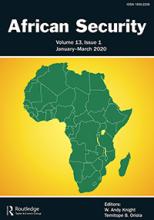Land Library
Welcome to the Land Portal Library. Explore our vast collection of open-access resources (over 74,000) including reports, journal articles, research papers, peer-reviewed publications, legal documents, videos and much more.
/ library resources
Showing items 1 through 9 of 607.The paper seeks to establish the role of religion and culture in the realization of women’s rights to property in Nigeria. It begins by affirming that protecting women’s rights to property in Nigeria is a fundamental step towards achieving the 5th Sustainable Development Goal of gender equality.
Labor migration and large-scale land enclosures are increasingly central to the story of agrarian change throughout the Global South.
This paper deepens the economic analysis of the effects of land consolidation – reduction of land fragmentation.
The recent spate of violence mostly in north-central and southern Nigeria, typically credited to conflicts between herders and farmers, and the reactions, narratives, and representations that have attended them, calls for an examination of core security questions: who or what is to be secured, fr
Land tenure, or access and rights to land, is essential to sustain people’s livelihoods. This paper looks at how farm households perceive land tenure (in)security in relation to food (in)security, and how these perceptions evolve throughout different policy periods in Laos.
The recent spate of violence mostly in north-central and southern Nigeria, typically credited to conflicts between herders and farmers, and the reactions, narratives, and representations that have attended them, calls for an examination of core security questions: who or what is to be secured, fr
Since Vietnam shifted to a market-economy in the 1980s, Hanoi has seen rapid urban expansion similar to that of other South East Asian cities - involving megaprojects, luxury developments, rural-to-urban migration, informal housing construction, and escalating speculation.
The forest landscapes of the Greater Mekong Subregion (GMS) are changing dramatically, with a multitude of impacts from local to global levels. These changes invariably have their foundations in forest governance.
Economic globalization promotes the economic development of underdeveloped regions but also influences the ecological environments of these regions, such as natural forest degradation.



